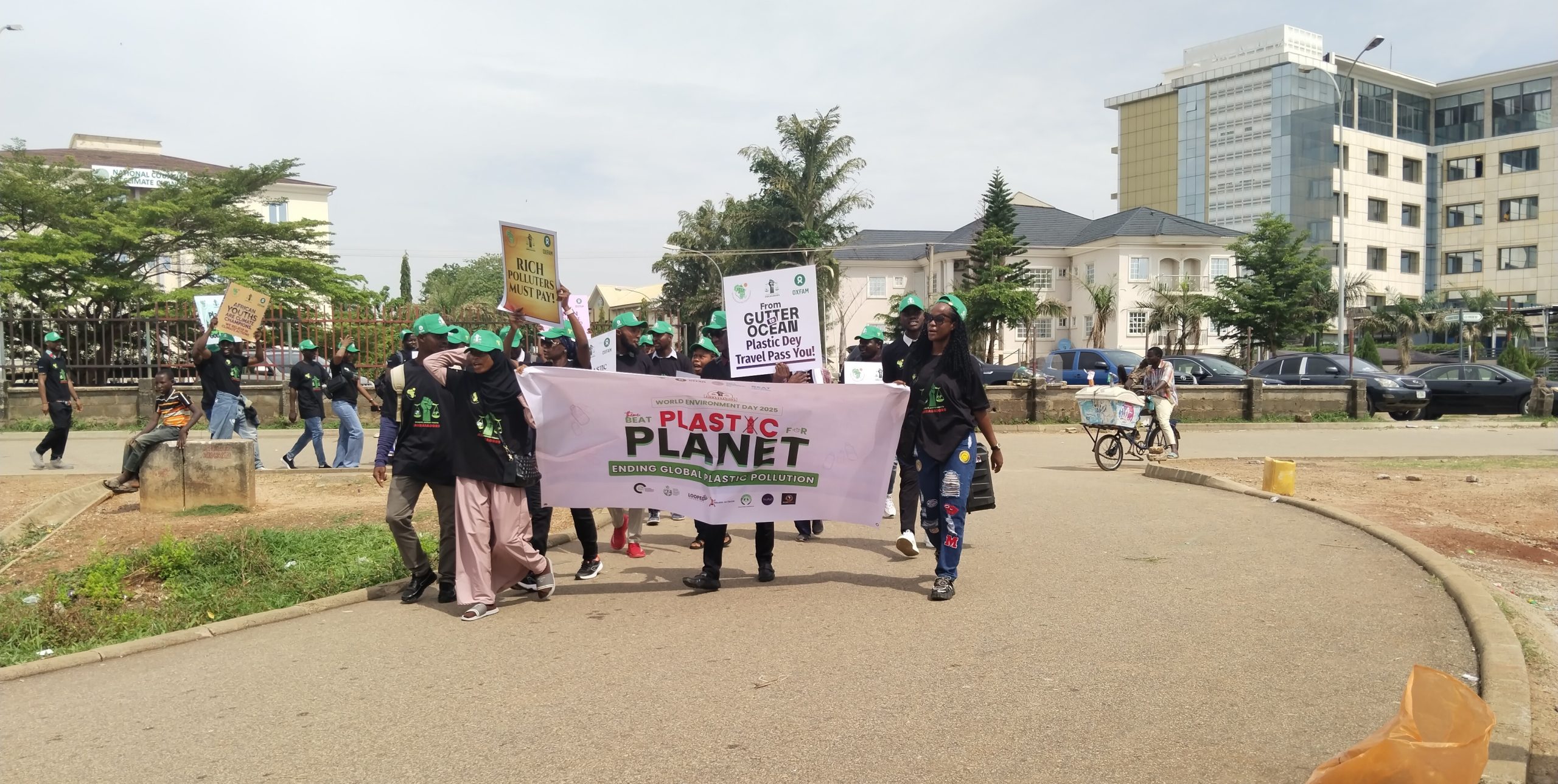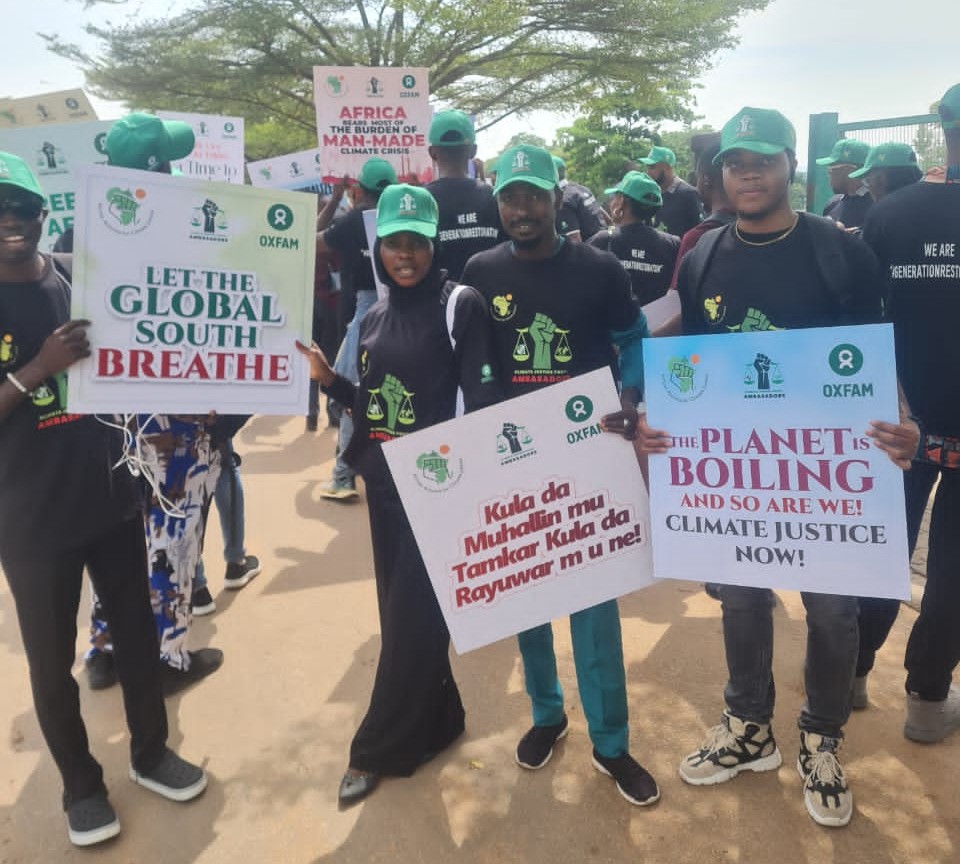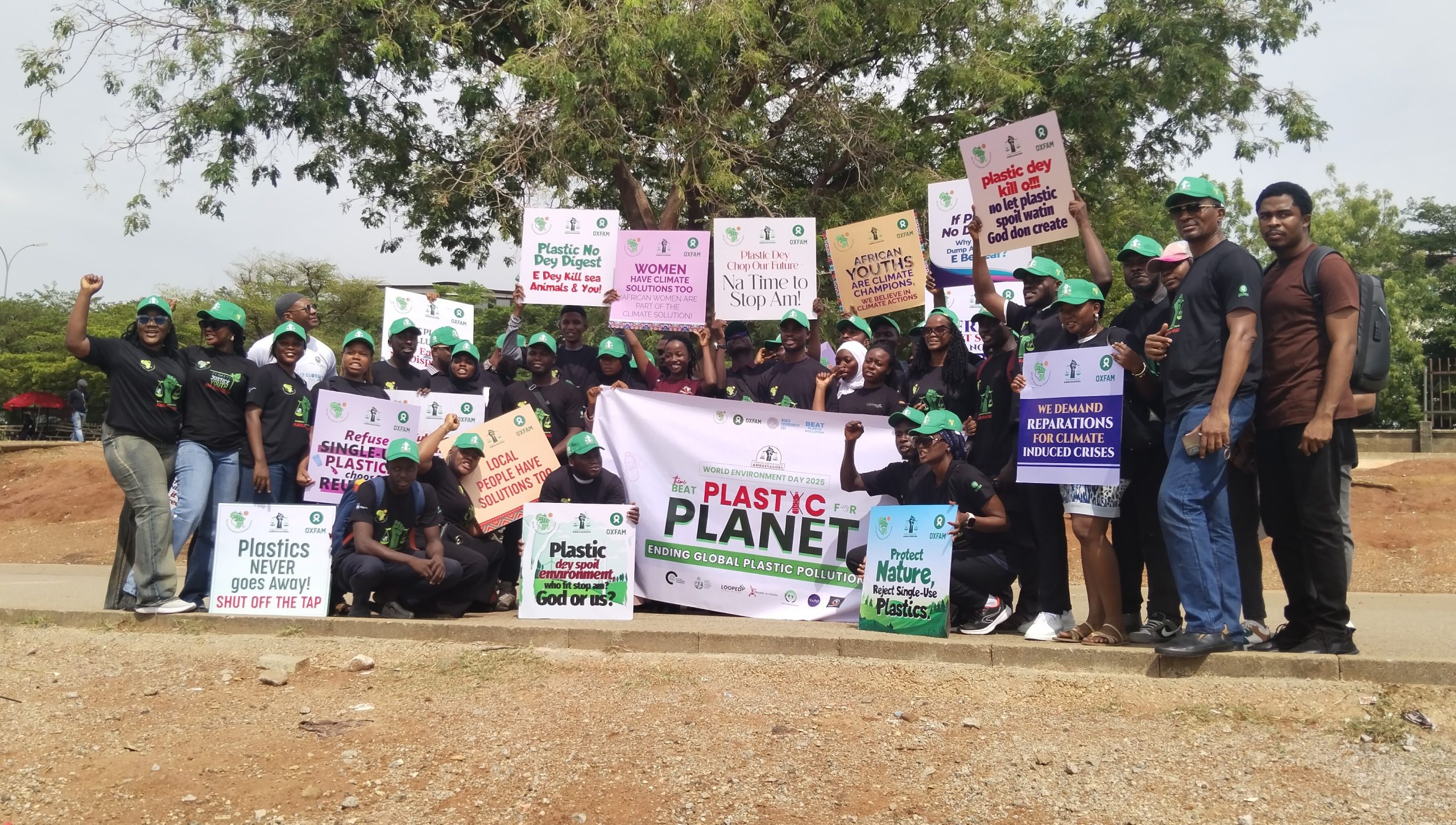Maureen Okpe
Environmental and Climate activists, youth leaders, civil society organisations have renewed calls for the ban on single-use plastics in Nigeria, citing the devastating impact of plastic pollution on health, the environment, and urban infrastructure.
Speaking at the end of the street sensitization walk from Airport junction to Jabi Lake in Abuja, Project Coordinator Climate Justice Oxfam, Dr Kenneth Akpan described plastic pollution as an environmental crisis that demands urgent government and private sector action.

“Today, we are coming together to amplify the energy of youth on the platform of the Climate Justice Youth Ambassadors, CJYA. We want young people to engage in the climate conversation and push for policies from government and private sectors,” he said.
Read Also: Over 40 Civil Society Groups Launch Climate Justice Movement, Demand Accountability from Polluters
Dr Akpan explained that the event is part of a broader Pan-African initiative running in eight African countries, aimed at equipping youths to advocate for climate justice and responsible environmental practices.
“We are here to create awareness on the dangers of plastic pollution to our environment and well-being. Plastic clogging our waterways contributes to flash floods, and lives have been lost as a result. It’s time for both governments and companies to take full responsibility,” he added.
He stressed the need for clear government policies that hold plastic-producing companies accountable, not only in encouraging recycling but in actively supporting it through infrastructure and education.
“We don’t just want them to tell people to recycle, we want them to show people how and where to recycle,” Dr Akan emphasized.
Also speaking, National Coordinator of the Climate Justice Youth Ambassador Network, Lauritta Boniface, lamented the widespread use of non-recyclable plastics, particularly single-use varieties, which she described as a “silent health and environmental hazard.”
“Plastics were once seen as innovation, but now they are everywhere, and managing them especially single-use plastics,is very difficult,” she said. “Microplastics are now found in drinking water, microwave-heated foods, and even newborns. That should alarm everyone.”
Boniface called on the Federal Government and state authorities to replicate what states like Lagos have already done by enforcing a ban on single-use plastics and adopting sustainable development policies.
“We are also showcasing innovations from young people turning plastics into reusable items and using paper bags and other recyclable alternatives. But the non-recyclables must be banned,” she said.
Read Also: Climate Change: Obaubazauw community to plant 1 million trees annually for next decade
Project Coordinator of the Climate Justice Youth Ambassador programme, Francisca Edeh, also emphasized the grave implications of plastic pollution on marine life, food safety, and urban flooding.
“These plastics end up in our waterways and disrupt aquatic ecosystems. As we eat these fish, we are literally feeding on plastic,” she warned.
Edeh urged the government to support recycling enterprises and encourage green entrepreneurship among youth.
“We need more recycling firms. We need proper waste disposal systems. And most importantly, we need a ban on single-use plastics,” she stated.
“Lack of implementation has crippled many good environmental policies in Nigeria. It is time for real action,” she added.
The youth-led event aligns with global efforts to end plastic pollution and foster environmental responsibility among citizens. It also spotlighted innovative solutions from young Nigerians converting plastic waste into useful materials.

Members were seen carrying placard with various inscriptions like; ‘Plastic no dey digest, e dey kill see animals and you, ‘Let the Global South breathe,’ ‘ Women have climate solutions too (African women are part of the climate solutions), among others.

